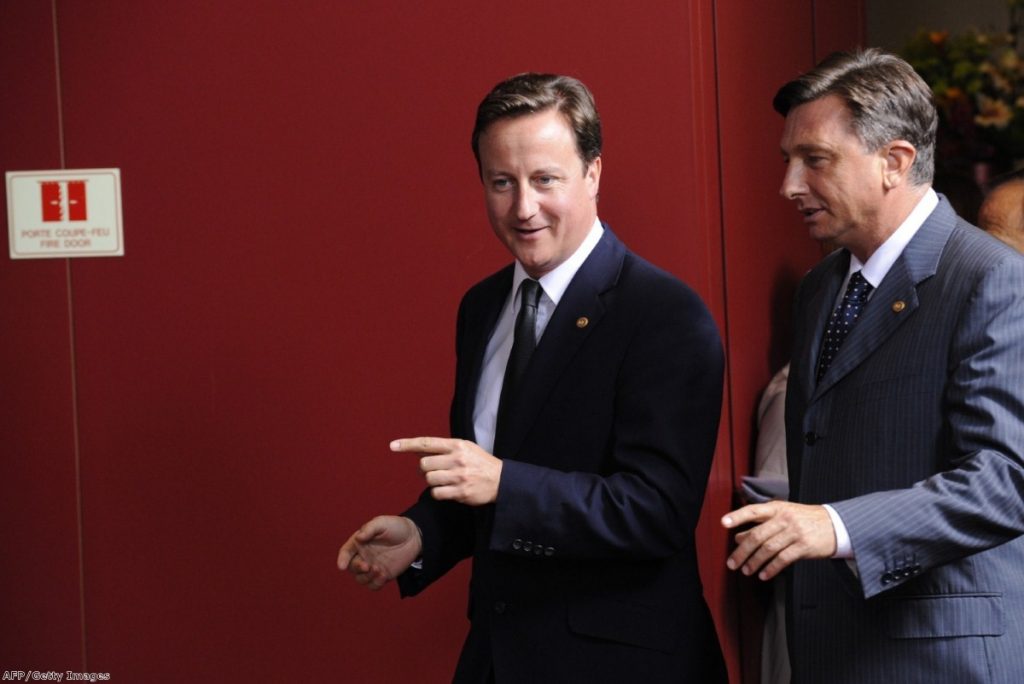Peacemaker: Cameron reaches out to Tory eurosceptics after revolt
By Alex Stevenson
Britain can use the eurozone crisis to win back powers from the EU, David Cameron has said.
The prime minister used his address at the lord mayor's banquet last night to send a clear signal to the 81 Conservative rebels who revolted against him en masse over an EU referendum last month.
Mr Cameron made clear that leaving the EU is not in Britain's national interest. But he pointedly referred to himself as a "sceptic" and backed those who question the "grand plans and utopian visions" of those in the EU.


"Change brings opportunities," the prime minister said.
"An opportunity to begin to refashion the EU so it better serves this nation's interests and the interests of its other 26 nations too.
"An opportunity, in Britain's case, for powers to ebb back instead of flow away and for the European Union to focus on what really matters – to underpin prosperity, stability and growth.
"That is the kind of fundamental reform I yearn for. And I am determined to do everything possible to deliver it."
His remarks echo the rhetoric of hardline eurosceptics who rebelled against him last month.
Last week Mark Reckless told politics.co.uk he wanted the government to "insist" on more powers being brought back to Britain, while Robin Walker said the eurozone crisis offered an "opportunity" to repatriate powers.
"It's right we should speak out and set out our view," Mr Walker said in politics.co.uk's podcast on the eurocrisis. "We should be looking for that opportunity, when the time comes, to repatriate powers as we promised in our manifesto."
Mr Cameron underlined his attack on Brussels by labelling its leaders "out of touch" for insisting on budget increases and blaming "pointless interference" for dampened growth.
"It does not have to be like this," he added. "Out of crisis can come opportunity for the European Union, if its member states are ready to grasp it."
European leaders remain focused on the immediate crisis rather than looking to December, when the first real steps towards longer-term negotiations will be addressed.
German chancellor Angela Merkel has adopted a particularly gloomy tone. Yesterday she said that Europe faced "perhaps the toughest hour since the Second World War", before adding: "If the euro fails then Europe fails."

